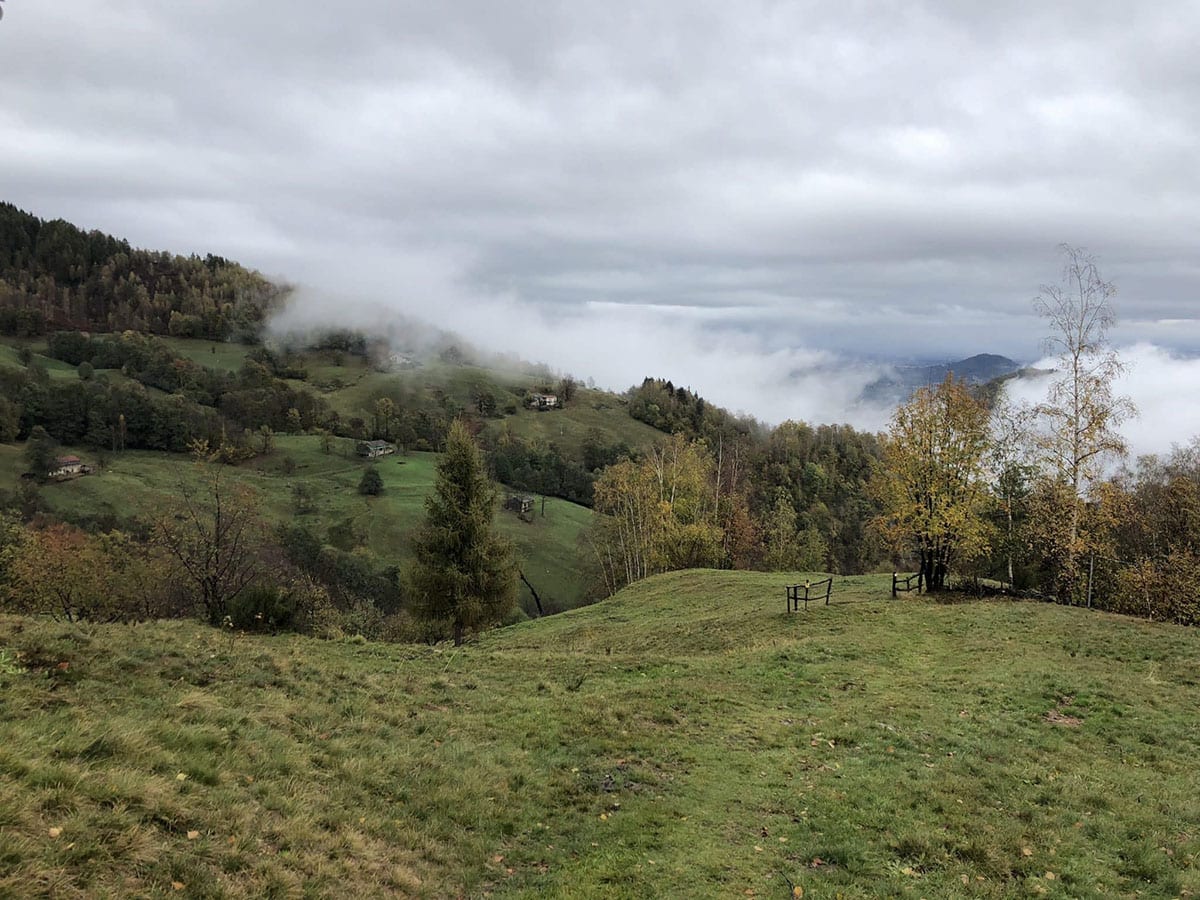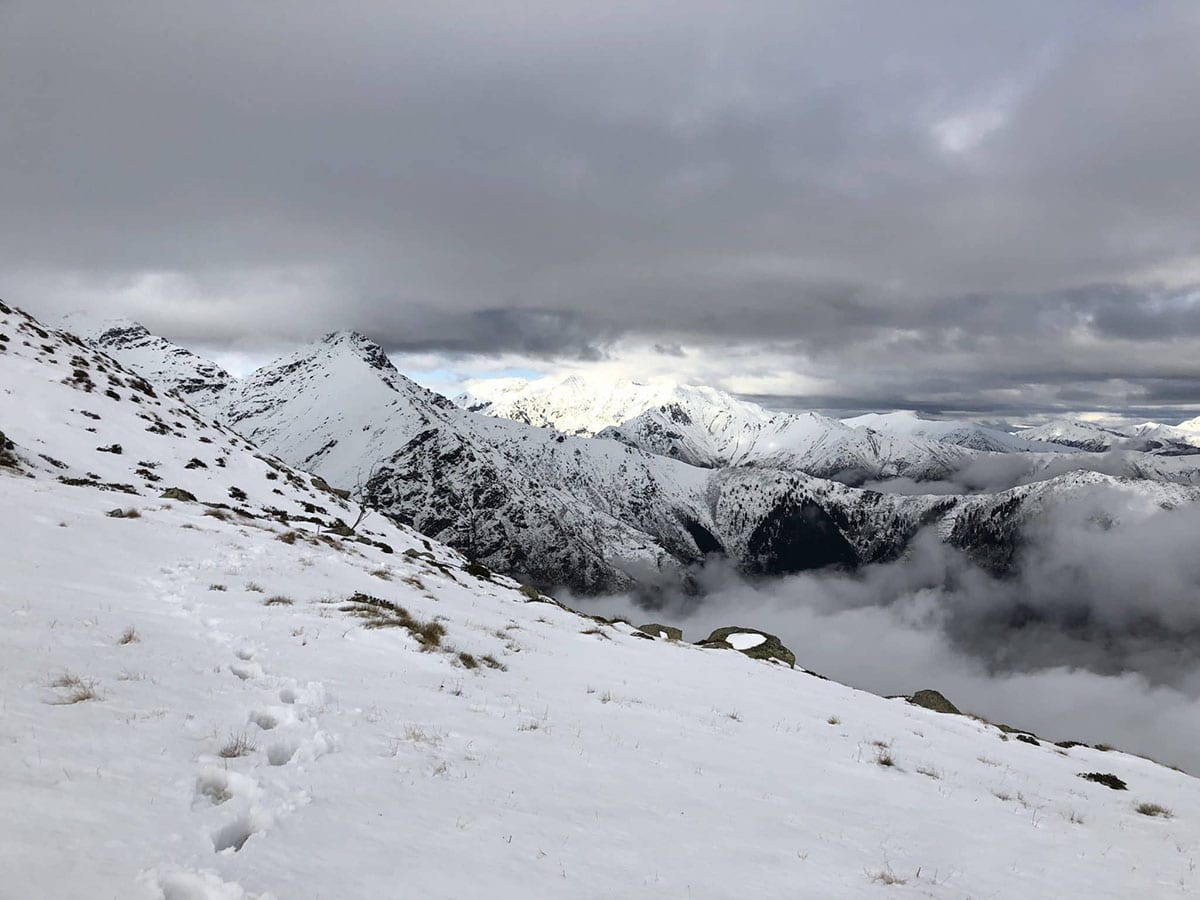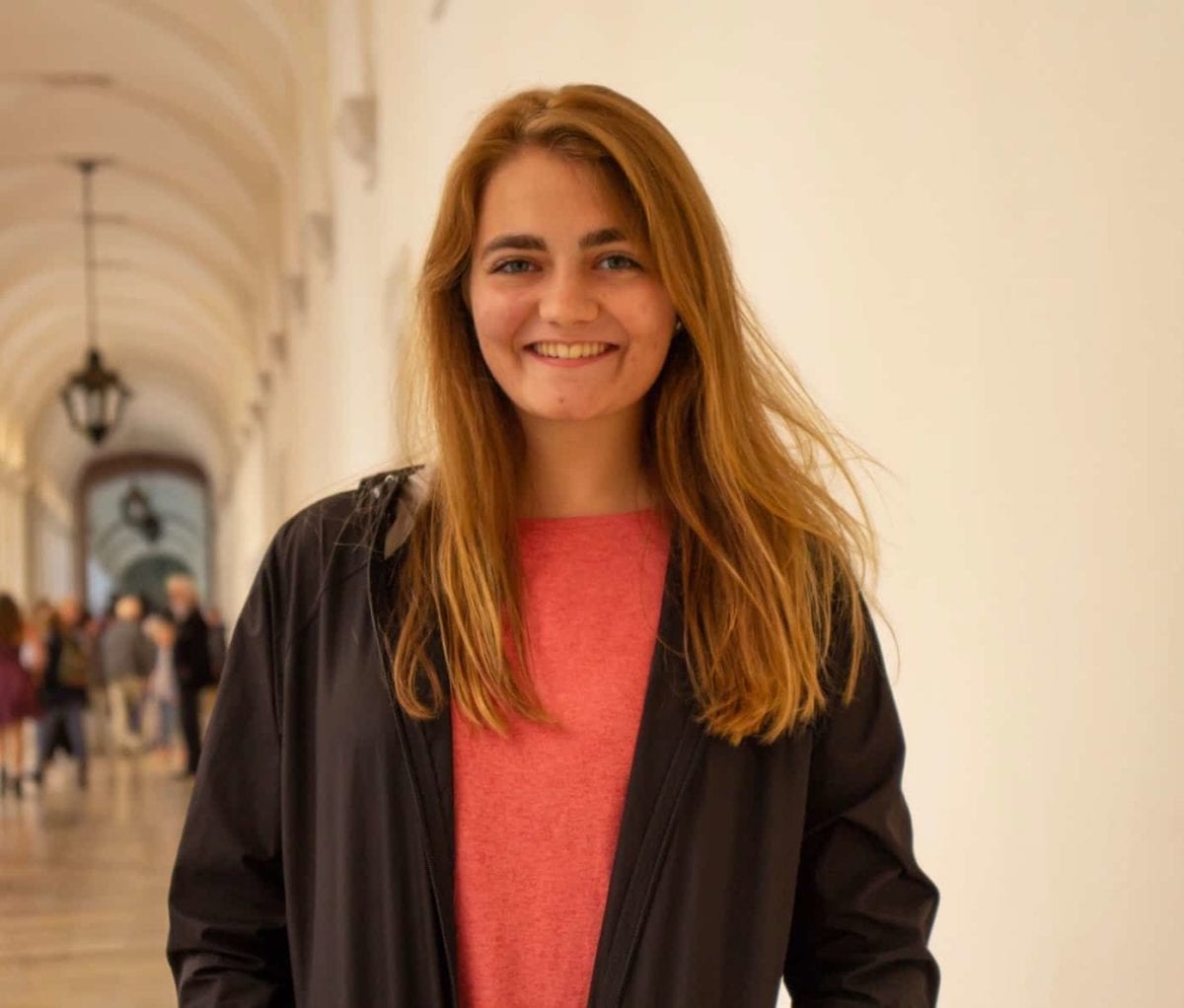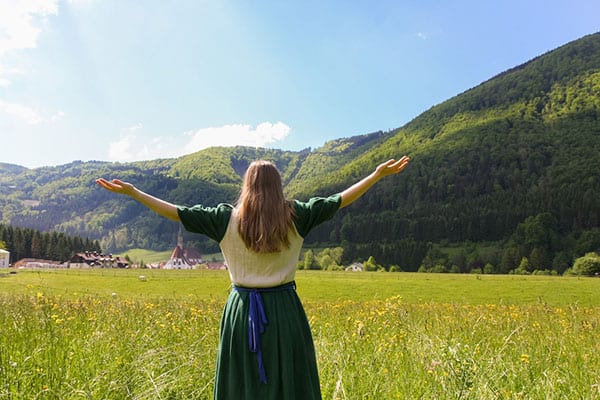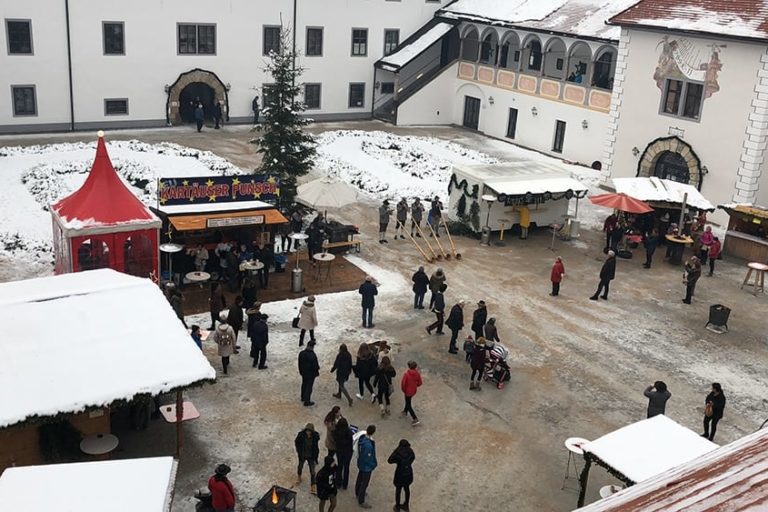I stop to catch my breath. Breathing heavily at 7,000 feet, the water vapor condenses into a thousand tiny droplets of ice. My foggy breath lifts into the air and becomes a cloud. Winter has arrived.
The grey stone tips of the Italian Alps are heavily dusted in snow, but at the base of this particular mountain, a dreary autumn rain has forced us to start our hike swathed in rain gear. We’re following the footsteps of Bl. Pier Giorgio Frassati, the “man of the beatitudes,” and we don’t really know what to expect.
We’re an intrepid, if not slightly out-of-place, bunch. Far from Franciscan University’s Gaming, Austria campus, we’ve traveled to Pollone, the small Italian village where the Frassatis had a summer home. Here, Blessed Pier Giorgio began his hikes into the mountains, many of them with friends—but one hike was especially his.
Pier Giorgio was baptized a Catholic but had very little instruction in the faith. The Frassatis were one of the most influential families in Italy at the time, but not religious. His father was an agnostic and ran a newspaper. His mother, a painter, would go to church, but never receive communion.
But somehow, Pier Giorgio grew to know and love Christ. His love was visible in his attention and care for the poor, his simple outreach to his partying friends, and his dedication to the Eucharist. Unknown to his family, he attended daily Mass very early in the morning, hiking to a church tucked in the mountains. Starting at his summer home, Pier Giorgio would make the hike in 45 minutes. It took most people three hours.
Poggio Frassati, the name of that trail, begins in Pollone and winds through inclines of spruce and larch trees, past cow pastures, and over the rocky spine of Monte Mucrone, a 7,600-foot vista separating Piedmont from Aosta. For me, the first hour is the worst; entirely uphill, each step is a mental tug-of-war to convince myself I can make it. I accept that I’m not going to match Bl. Pier Giorgio’s record time, that each step will be filled with damp winds and burning calf muscles, that the hike won’t match the dictionary definition of “fun.” As I do, each step becomes more bearable. I settle into a rhythm; my strained breath and cold toes and sniffling become part of my existence.
We started in a pack, but now we’re spreading out. I fall somewhere in the middle, walking alone. The steady silence of the trees and the pattering drip of rain on orange and red leaves plays alongside my thoughts of both this present pain and my future.
As with every young Catholic, I’ve become (mostly through osmosis) obsessed with vocation. Where does God want me to be; what does God want me to do; how many novenas must I pray before He shoots me a text that says, ‘Hey, Marianna, do this.’”
Now, I know that vocation is more than religious life or marriage, and I live by the saying “Love God and do what you will,” but there still remains that question: Is this what I’ve been made to do?
I graduated in May, earning an English degree. Currently, I’m taking a few classes and advise students as they travel during their semester abroad. I have a place to live, food to eat, and unlimited access to Milka chocolate. But I know it’s only temporary. I have one foot still in college and one foot tentatively searching for the next step, waiting for … something.
This time of waiting, of looking to the future for the arrival of that perfect job, that perfect spouse, that clear sign showing me how my deepest desires will be fulfilled, seems to coincide perfectly with the arrival of Advent.
I love Advent, but mostly because Christmas follows. Advent, while a time of redirecting our lives, is not as long as the other penitential season (Lent) but does have some lovely smells (pine, gingerbread, coco). Knowing that on the morning of December 25 there will be presents under the Christmas tree is enough to help me through those four weeks of waiting.
As I look up at the mountain, my legs heavy, my face cold, I realize my hike is also a time of waiting. How much longer? Where is the summit? When can I sit down, out of the cold, and change my socks? As much as I want a sign around each corner or ridge telling me where to turn, I have to walk on, confident the summit is ahead.
As a young man, I’m sure Pier Giorgio faced many of the questions I face. Maybe not about the hike, since he was very familiar with the mountains around his summer home, but about life. Born in 1901, Pier Giorgio had the world at his fingertips. He was athletic, handsome, well-liked, and had a greatly respected family. Embracing his faith, he looked for an occupation and established relationships that he could see bringing greater glory to God. He was on his way to earning a degree in engineering so that he could more readily help impoverished miners. However, at only 24 years old, he contracted polio and died.
But … how could that happen? He hadn’t yet realized that great potential inside him. He hadn’t found that job, that spouse, that calling that filled his deepest desire . . . at least, not in the eyes of world.
Pier Giorgio contracted polio after visiting one of the many sick people he ministered to. With his allowance, he had supported orphans and widows. He joined the Marian Sodality, the Apostleship of Prayer, the Vincent de Paul Society, and became a third order Dominican. He actively protested against the rise of Benito Mussolini and fascism. As he lay dying, his last act was to ensure that a poor man’s prescription was filled and delivered. At an age when many young people are still trying to figure out how to live on their own, Pier Giorgio was not passively waiting for a vocation.
For his vocation arrived every time a beggar came to his door. His vocation arrived when he had the opportunity to invite his friends to Mass and Adoration. His vocation arrived every time he walked out into the streets of Pollone and Turin to care for those less fortunate than himself.
His vocation arrived because he was always moving toward the top of the mountain.
Whether we are waiting for the end of a hike, the Child Jesus, or our Great Big Vocation, our waiting must not be passive. Just as the snow on the mountains falls heavier the higher the peaks climb, so too it is in our ascent toward heaven that we find our direction from God.
Verso l’alto.
To the top.


